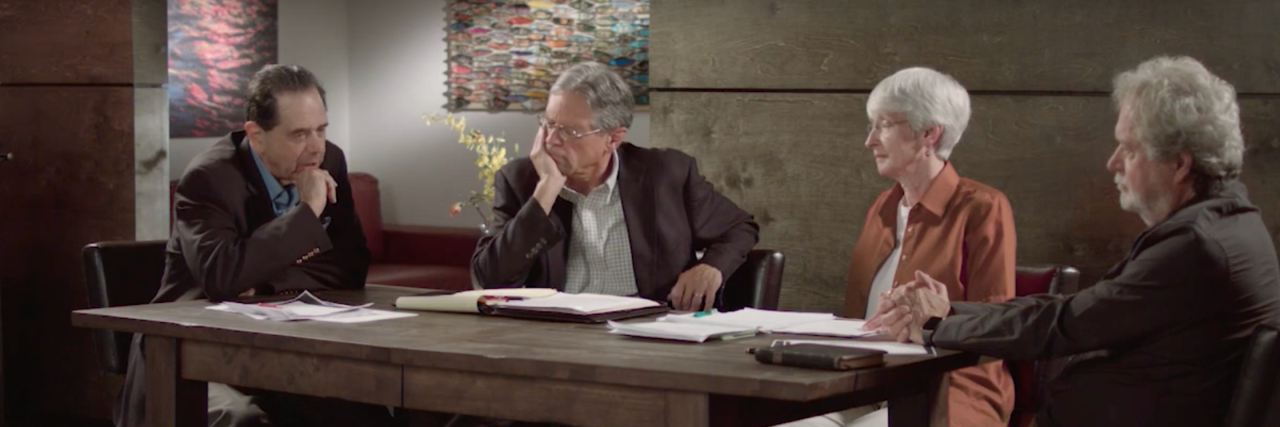From February 28, 1993 to April 19, 1993 the siege of a peaceful religious community called the Branch Davidians at Mount Carmel in Waco, Texas took place. The siege was broadcasted, and the media demonized this nonviolent community in the viewer’s eyes for 51 days– until the siege ended in a massive fire and an enormous loss of life. However, the trauma of this massacre has not seized. The media has continued to demonize the Branch Davidian community for the past 28 years, but the survivors of the Waco Massacre— including David Thibodeau, author of “A Place Called Waco: A Survivor’s Story,” the book that inspired the miniseries from Paramount– have worked tirelessly to get the true story of the siege out to the public.
As someone who had not been born at the time of the Waco Massacre, I watched the mini-series last year when it was featured on Netflix knowing nothing about the event beforehand. After watching the series, I felt as though my heart had been completely shredded, and I was compelled to act.
As an empath, the secondhand pain I experienced while watching the mini-series changed me. Shortly after this transformative experience, I connected with David Thibodeau and had the honor of interviewing him and discussing Waco as well as current racial injustices and mental health. Now, months after my interview, I was honored to be invited to the 28th memorial of the Waco Massacre. My wounded heart was reopened after listening to various survivors including David Thibodeau as he honored the 76 Branch Davidians who died in the final fire– including 22 children as well as the ATF agents whose lives were lost.
Numerous survivors attended the memorial and spoke about their experiences during the siege, while also remembering those who died. Despite the time that has elapsed since the Waco Massacre, the trauma that the survivors have endured for not only those 51 days but for the past 28 years was palpable and left me shaking and in tears. To many of the survivors, the Branch Davidian community was their family and the pain from the needless loss of life at the massacre lives on each day. However, many of the survivors, including David Thibodeau, are now dedicated to sharing their stories and shedding light on the lies that the media portrayed about the massacre– and the script that has continued on for 28 years. The trauma that the survivors and those who lost their lives experienced during the 51-day siege is indescribable, and to be silenced for so many years has only emphasized the pain and invalidated the experiences of those affected.
There is a saying that goes “time heals everything” but for the Waco trauma survivors, this simply is not true. Listening to David Thibodeau list off and share stories of each person who lost their lives in the massacre with such strength and grace brought tears to my eyes and brought up the same intense anger that I first experienced last year when watching the mini-series on Waco, and continuing my research of the event and those involved. For a peaceful religious community to be targeted in such a violent manner, the memories of those 51 days are fresh and the memories of that community and those who lost their lives remain in the hearts of the survivors. Such severe trauma often debilitates and silences individuals, but for many of the Waco survivors, sharing their stories and fighting for the truth of the massacre to come out gives them power and purpose. I have become so passionate about this horrible tragedy and deeply empathize with the survivors, but I know that I can never fully understand the amount of pain, anger and invalidation they have experienced and still experience today. However, I can share their experiences with you and invite you to learn more about the truth of the Waco Massacre.
I sincerely encourage you to listen to their stories to shed light on the trauma that they have endured and continue to live through. Having post traumatic stress disorder (PTSD) myself, I deeply empathize with the lasting traumatic experiences of those who survived Waco, but I am so in awe of their strength, faith and how dedicated they are to shed light on not only what happened at Waco, but to also highlight the fear and injustices that religious communities experience across the world.
I have witnessed myself how the survivors of Waco have transformed their trauma into action, and I am in awe of how something so awful can inspire change and empathy in not only America, but across the world. Enduring PTSD and the after effects of trauma is oftentimes brutal, but the survivors of Waco demonstrate how trauma can be used to ignite action and empathy in a world oftentimes controlled by the media. I am more than honored to know this community of survivors and to be inspired by them and their faith.
There is a plethora of information on Waco out there, but David Thibodeau is adamant that only information from the survivors and those who have studied the tragedy extensively be shared. If you would like to learn more about the Waco Massacre, those who lost their lives, the survivors, and the Branch Davidian’s religion, the following website is the go to place for information created and collected specifically by the survivors. The following documentary was also mentioned at the memorial and is a deep analysis of the Waco Massacre, and what we have learned(or not learned) since then.
Here are resources to learn more about Waco:
The Waco Branch Davidian Tragedy: What Have We Learned or Not Learned?
Lead image courtesy of “The Waco Branch Davidian Tragedy: What Have We Learned or Not Learned?”

